Tobias Denskus: Development Communication is Witness to Injustice
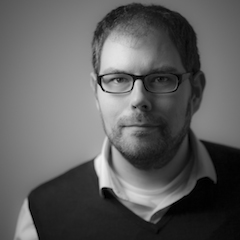
This week we talk with Tobias Denskus, a Senior Lecturer in Communication for Development at Malmø University and a member of Ørecomm community about prospects of the aid industry, a new generation of potential comdev professionals and practices that can have an actual impact.
You engage in a wide range of activities including teaching, training, writing and reviewing latest news on communication for development on your blog Aidnography. Besides that, what are your current research priorities?
Tobias Denskus: Thanks for inviting me and the opportunity to share some of my work in the context of our cross-national and bi-university cooperation between Malmø and Roskilde universities.
I would like to highlight two projects that also show the scope of research we cover under the label of ‘Communication for Development’. In the context of our Critical Perspectives on New Media and Processes of Social Change in the Global South, I have started together with my research assistant Liridona Veliu to analyze social media coverage, hashtag activism and digital mourning cultures in the context of the horrific terror attack in Garissa and the Westgate Mall incident in 2013; this is an interesting project where various social media, new and old forms of journalism and anthropological research interact in the context of contemporary media ecologies and politics in Kenya.
Here ‘at home’ in the Øresund region I have been part of the GoComm project that we can hopefully continue in the future. The Øresund region is very dynamic and engaging with local organizations, start-ups and similar innovative partners on development and communication issues bridges an important gap between more traditional research and the challenges of local partners that want to ‘do good’ and engage in sustainable ways globally. It sounds a bit like a cliché, but that’s really what makes the Ørecomm center a hub for ‘glocal change’.
The rising ‘Generation Z’ might be the next hope of engaged change makers the development sector. Yet, it might be challenging to recruit these young people. You argue that there is a clear misunderstanding of who the Generation Z is. Can you elaborate a bit more on what makes this group so outstanding for the development sector? Furthermore, what Generation Z will look career-wise?
Tobias Denskus: From a development and communication point of view this is an interesting and ongoing question-not just for ‘Generation Z’, but also for ‘Generation Y’ or the ‘Millennials’; it seems a bit like a holy grail to find out how today’s 15-35 year-olds will engage with international development in the next decade or so. I came across a very interesting presentation at the SXSW festival a few weeks ago where 2 teenagers presented a small research project on media consumption and digital interaction; if you look at the sixth, final graph, the ‘do’s’ and ‘don’t’ of how to connect with them, it is also crucial in understanding how to build development organizations, campaigns and content of the future. On the one hand, the complex, political challenges of development work and how to communicate them to various audiences should be appealing to them, on the other hand, we need to prepare our selves, our students and the communications departments for these new forms of engagement. At the end of the day, you will attract talent by being authentic, open, self-reflective and humble-but you also need to meet organizations and the ‘aid industry’ maybe half-way and recognize that it requires more than the next big, viral campaign to ‘end poverty’…
Your MA in Communication for Development is celebrating 15 years this year and has been offering a unique blend of online courses and seminars, e.g. in connection with the Ørecomm festivals or the Glocal Classroom project.
What do you think motivates your students to enter the course? Do you know about their whereabouts and career paths after completing the course?
Tobias Denskus: As you said, we are celebrating 15 years of ComDev this year and we will organize an event in mid-September and invite colleagues, students and alumni-so watch the ComDev portal for news and updates!
The biggest ‘pull factor’ for our course is that we are constantly improving our blended learning approach-so our 50% full-time course neither becomes a self-learning online course, nor a ‘distance learning’ experience for the students; the majority of them is not based in Sweden and as you mentioned in your question, with academic partners in Australia, Canada and South Africa we are really trying to work on a global classroom with local roots-the Glocal classroom.
We are also getting better in connecting with alumni on Facebook and Linkedin, for example. We just organized a virtual career afternoon with alumni who now work for SIDA in Stockholm, the WFP in Rome, MSF in Toronto or Folke Bernadotte Academy in Hebron; but our alumni do not just work in the ‘aid industry’-we have an Iranian artist who graduated recently or one of the early graduates who now works in the Brooklyn public library in New York; last not least, as Florencia’s recent success story shows we have a small, but growing group of graduates who successfully pursue academic careers.
One of the partners of Ørecomm and Malmø University is UNICEF and its C4D team and field officers around the globe. What elements does the partnership comprise and how do they fit into the strategic activities of Ørecomm?
Tobias Denskus: We have started to collaborate in a variety of areas that, as straightforward as it sounds, are built on our experiences and strengths in teaching, research and capacity development. At the moment I am working on a strategy advisory project together with Thomas Tufte and Johanna Stenersen (who is a ComDev alumna as well!) in connection with the regional office in Geneva and the country offices in the CEE/CIS region. We also taught our first Advances in ComDev course and the participation of UNICEF staff members from five different offices added unique practical insights to the course. And we are also discussing internship opportunities with UNICEF that can be integrated into postgraduate courses at Roskilde and Malmø University. All in all, our aim with these partnerships is to have practical, hands-on connections with tangible benefits for the organization, our students and our capacity for applied research.
As a long-term resident of the ‘Aidland’ who conducted research in Afghanistan, Germany, Nepal and Macedonia, you have shared critical research and commentary of various aspects of the ‘aid industry’ as an integral part of a globalized culture between capitalism, philanthropism and voluntarism.
What should one bear in mind when contemplating joining this industry and how can you turn your good intentions into actual positive impact?
Tobias Denskus: Wow…this is a question that probably deserves an entire interview itself…if I brush over some of the nuances and ‘but’s’ and ‘if’s’ of the development enterprise, I would say that at the core of most, if not all, good development work lies a critical engagement with power structures. And that’s pretty much regardless of where you are. In a way, writing a blog post about a local food bank, working in a big, donor-funded governance project abroad or volunteering in a small rural NGO can all be meaningful experiences; they can nurture ‘development’ especially if someone with formal power, someone who benefits from the status quo and stagnation feels challenged, maybe even uncomfortable, perhaps even pissed off a bit…
At the end of the day, when all ‘white Land Cruiser’ jokes are told, all ‘white elephant’ projects are evaluated and all voluntouristic photos by white people are uploaded to Instagram, development in general and development communication in particular will continue to have an important role as witness to injustice and marginalization, as an amplifier of dissent and as a connector between cultures, stories and those who need a virtual or physical hand that reminds them of humanity. At least that motivates me to keep going…
Thank you for joining us, Tobias, and good luck with your projects!
Thanks you for inviting me today-looking forward to continuing our discussions in the context of Ørecomm!
Image: Magnus Denker/MAH
 New PhD opportunities at the University of Leicester
New PhD opportunities at the University of Leicester Call for Abstracts: New Directions in Media, Communication and Sociology (NDiMS) Conference
Call for Abstracts: New Directions in Media, Communication and Sociology (NDiMS) Conference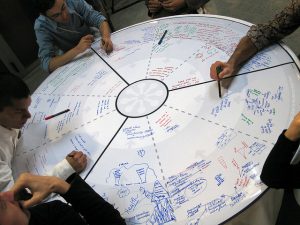 Ørecomm Team to Gather at the University of Coimbra
Ørecomm Team to Gather at the University of Coimbra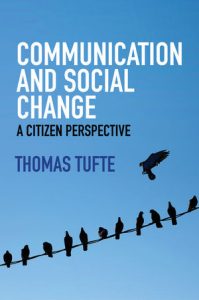 “Communication and Social Change – A Citizen Perspective” Published
“Communication and Social Change – A Citizen Perspective” Published C4D Network to Sum Up Global Communication for Development Practice
C4D Network to Sum Up Global Communication for Development Practice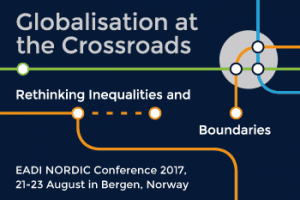 Entering Media and Communication into Development Conferences?
Entering Media and Communication into Development Conferences?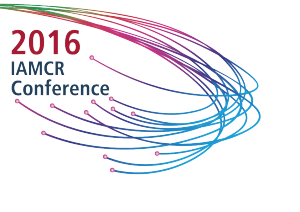 IAMCR Conference 2016: Communication for Development Highlights
IAMCR Conference 2016: Communication for Development Highlights Glocal Classroom Revisited – Storytelling & Social Change Leicester-Malmö
Glocal Classroom Revisited – Storytelling & Social Change Leicester-Malmö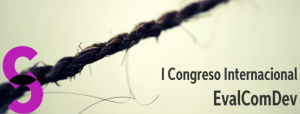 I EvalComDev International Conference: Call for Papers
I EvalComDev International Conference: Call for Papers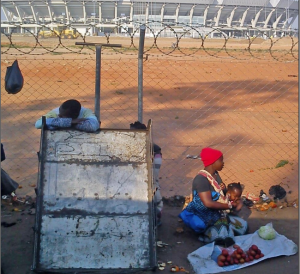 Looking for Media and Communication in Development Conferences: Devres 2016
Looking for Media and Communication in Development Conferences: Devres 2016